10 Things We Learned From WWE SummerSlam 1994
The Undertaker and Underfaker's match almost had a much weirder conclusion...

Jul 27, 2018
Almost 24 years have passed since the occurrence of SummerSlam 1994, a show that looks a little better in hindsight than it did at the time. The two most notable matches of said pay-per-view included one that stands the test of time as a thrilling classic, while the other was borne of an utterly silly idea and played it even worse in ultimate execution. To put it mildly, SummerSlam 1994 was a show whose qualities ran the gamut.
The show itself is a microcosm of 1994 in general for WWE, and possibly the surrounding years. On the one hand, you had Bret and Owen Hart being counted upon to anchor the card with an undoubted great match, which they did inside of a steel cage for Bret's WWE Championship. Hart, like Shawn Michaels, would often have to bear the weight of the world on his shoulders when it came to delivering at least one match that would justify the pay-per-view's oxygen.
On the other hand...well, all you have to say is Undertaker vs. Undertaker. WWE's predilection for giving RD Reynolds plenty of material to write about (especially in those hammy mid-nineties) was never more nuanced than when WWE gave us a Mortal Kombat mirror match. And not even a good one, either.
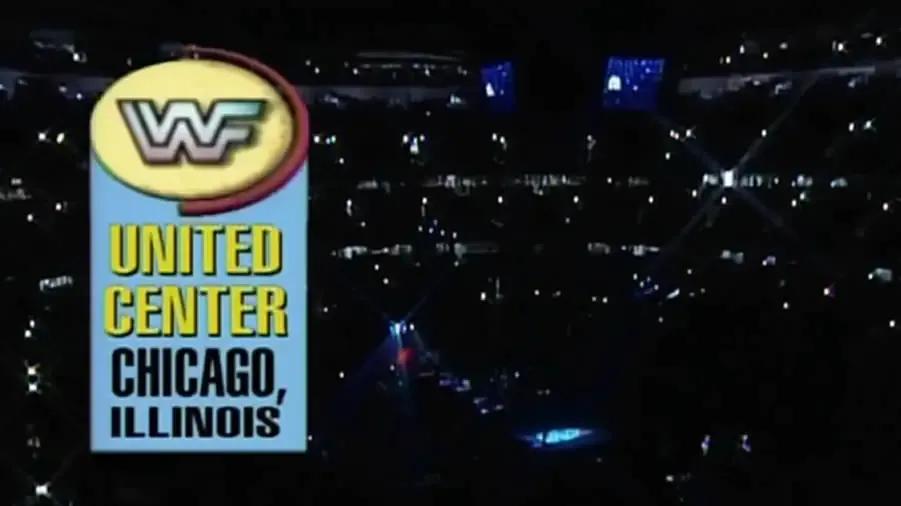
Something Vince McMahon made sure to excessively note during the pay-per-view was how SummerSlam was the very first event to take place in Chicago's brand new United Center, which had only opened 11 days prior to show day. The 23,000-seat venue was filled to capacity that night in the Windy City, and the scandal-plagued WWE was all too happy to make sure we knew that they were the United Center's first tenants.
Interestingly enough, that night would also be the *only* time that WWE would ever run the building, preferring instead to hold their Chicago cards in the historic Rosemont Horizon (later renamed the All-State Arena). Some claim that cheaper rental costs are a big reason for WWE eschewing the United Center for Rosemont, while others believe that since the NBA's Bulls and NHL's Blackhawks play at the United Center, WWE never has to worry about scheduling conflicts by sticking with Rosemont.
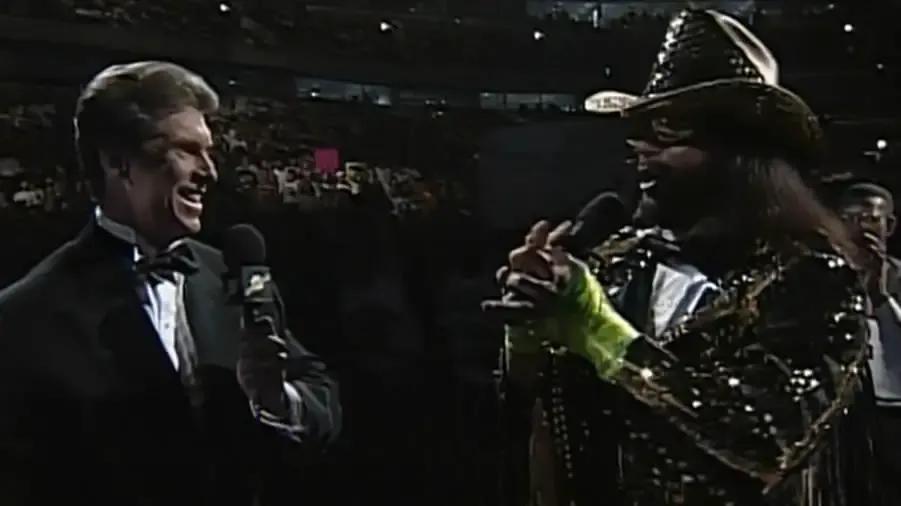
SummerSlam 1994 is also noteworthy in that it would feature the final WWE pay-per-view appearance of Macho Man Randy Savage. For much of the previous two years, Savage had (apparently against his will) been relegated to the role of part-time wrestler, mostly performing commentary duties alongside Vince McMahon on Monday Night Raw. Savage would depart the company shortly after Halloween 1994, signing a loaded deal with WCW that would see the Macho Man actively wrestle once more.
As for SummerSlam, the entirety of Savage's on-camera use was to introduce McMahon and Jerry Lawler at the start of the night, and would appear once more briefly later in the show. Several weeks later, Savage would wrestle what would be his final matches with the company on a European tour, teaming with Bret Hart in victories over Owen Hart and Jim Neidhart.

Dennis Rodman was far from the most bad-ass Bull to compete inside the United Center - that honour goes to Keiko Nakano, who unsuccessfully challenged for Alundra Blayze's Women's Championship at the 1994 SummerSlam. Nakano and Blayze were ideal opponents, and their work across just eight allotted minutes still managed to make their match the second or third best of the evening.
The match also marked a unique accomplishment for Nakano, as she became the first Japanese-born wrestler to complete for any belt on any WWE pay-per-view. Obviously, the likes of Yokozuna (a Samoan born in California) and Mr. Fuji (an American of Japanese descent, born in Hawaii) do not count, while Nakano was legitimately born in Saitama, Japan. Three years later, Taka Michinoku would become the first Japanese-born male wrestler to achieve the same feat, when he wrestled for the vacant Light Heavyweight title.
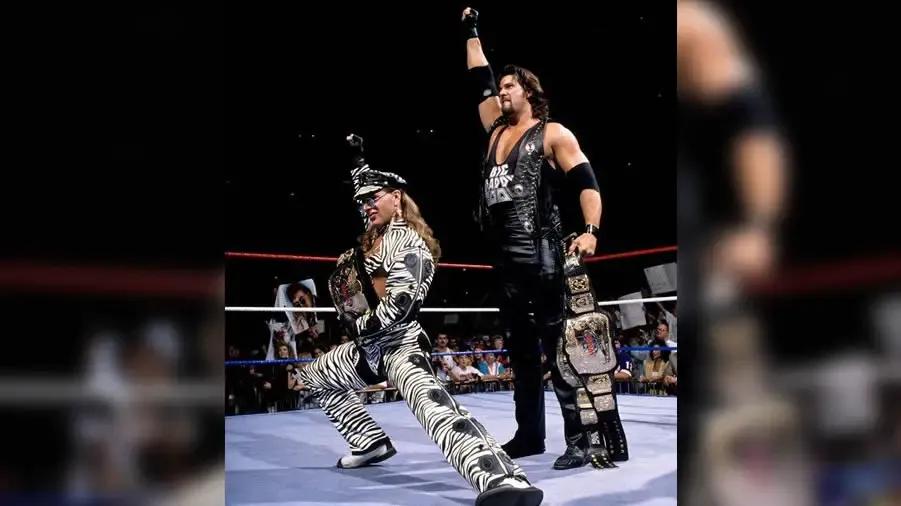
Diesel was the IC Champion headed into the 1994 SummerSlam, and he would lose the championship to the man he won it from, future fellow Outsider Scott "Razor Ramon" Hall, in a very good big man match. The loss to Ramon capped off a unique 24-hour period for himself, as well as tag team partner Shawn Michaels.
One full day before SummerSlam, Diesel and Michaels had won the Tag Team Championships from The Headshrinkers at a house show in Indianapolis, IN. In the days before widespread internet availability, the world found out about the title switch when Diesel and Michaels appeared on the morning talk show Live With Regis and Kathy Lee, which was filmed in New York City. So the Kliqsters, after winning the belts, caught an early-morning flight to New York, then immediately crossed back over to Chicago (passing Indianapolis on the way) in order to attend the pay-per-view.
One of the more curious matches at SummerSlam '94 saw Jeff Jarrett defeat the monstrous Mabel in a relatively brief match. The match itself wasn't borne of any particular feud, nor was there a storyline reason for Jarrett and Mabel to be matched up against one another at a major pay-per-view. As it turns out, Mabel wasn't even the original opponent for Double J.
In what would have been a more sensible match, Jarrett was originally supposed to face Doink the Clown, with whom he had been feuding since the spring of that year. Jarrett had gotten Doink's goat on a handful of occasions, most notably in costing Doink in his King of the Ring qualifier after trying to kidnap Dink (ahh, 1994). Mabel would claim in an interview years later that he was definitely swapped in for Doink for the SummerSlam match, but admits that he's not sure why.
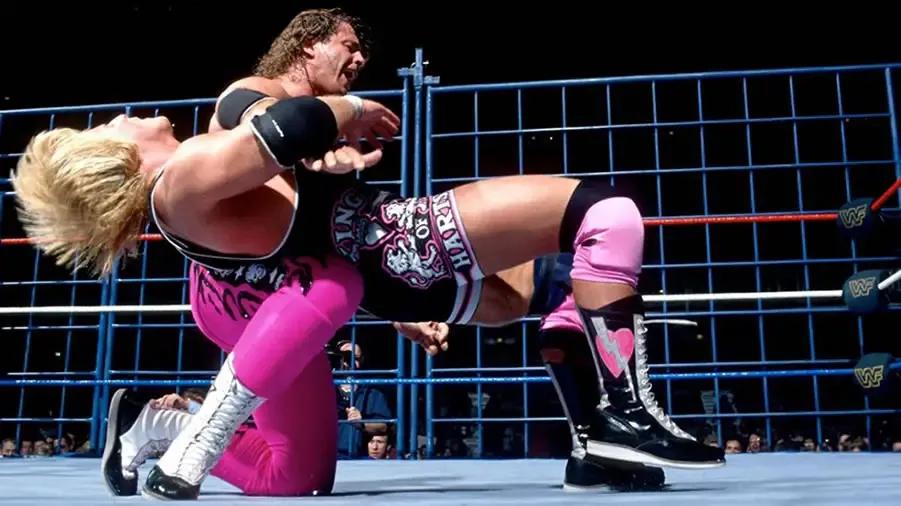
Finally, into the realm of greatness we go. The Steel Cage Match pitting WWE Champion Bret Hart against brother Owen would be the only SummerSlam match ever awarded five stars by Dave Meltzer, and he wouldn't be the only one impressed by the epic-length dramatic struggle. Bret would be winning said match in order to avenge his WrestleMania X loss, and at one point, it was supposed to be a feud ender.
According to Bret, he and Owen were told that this match would be their final one together, the ultimate blow-off to their lengthy grudge. Though Bret may have been told this, it's actually hard to believe that WWE would really go this route, considering that Davey Boy Smith had just returned, quickly getting insinuated into the wildfire that was the family spat. Indeed, Bret and Owen faced off in future battles, including the first-ever match on WWE Action Zone, as well as a No Holds Barred match on Raw in the run-up to WrestleMania XI.
If you've seen the Steel Cage Match, you certainly remember watching Bret and Owen try to leapfrog each other in a series of elaborate escape attempts, each managing to thwart each other throughout the early stages of the match. A big part of what made that cage match work was seeing the brothers get the most out of the dramatic climbs and the struggle to prevent the other brother from leaving.
The breathless tries at escaping were partially out of necessity - Bret and Owen were both made aware that blood was forbidden in their match. Not only did WWE adhere to strict PG guidelines in 1994, but there was a big campaign (particularly in US Congress) to curtail TV violence in the mid-nineties, and Vince feared losing coveted time slots during weekend daylight hours if his shows were believed to be not for children. Additionally, Bret admits that neither he nor Owen wanted to bleed in front of their mother, who would be seated in the crowd. Hence, the relatively-clean match.
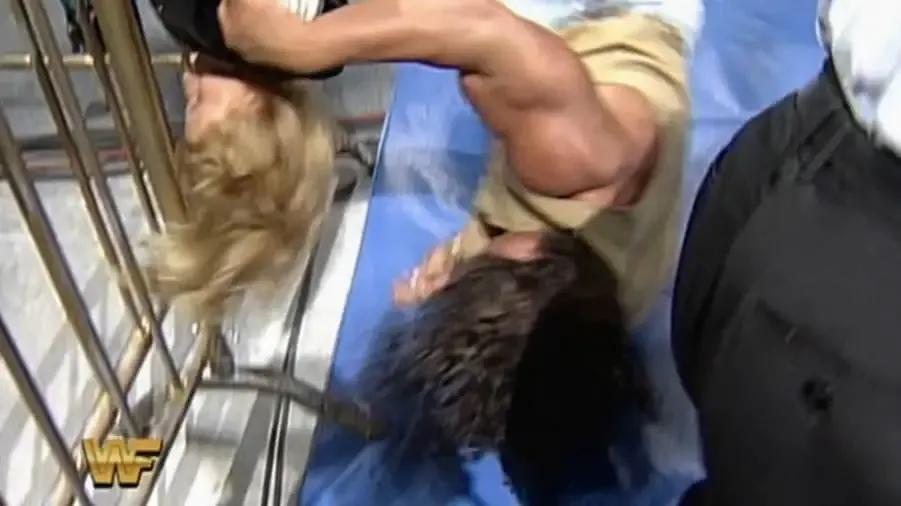
It would've been pretty hard to just let the Bret/Owen melodrama die out at SummerSlam, given the chaotic post-match scene. After Bret left Owen hanging upside down from the steel bars, the champion continued his descent toward victory unabated. From the first few rows in the crowd, an assembly of a couple dozen Hart family members all stood and applauded, sans an irate Jim Neidhart, who quickly ambushed Davey Boy Smith to initiate an ugly scene.
As Smith and wife Diana (Bret and Owen's sister) cheered from the front row, Neidhart jumped the rail and clotheslined the Bulldog from behind, so that he would cut a flip over the railing, splatting onto the ringside floor. When Davey went over, he had his arm around Diana, who took the bump with him. According to The Hitman, this was not part of the plan as Davey conspired with his wife to physically involve her which annoyed a few of those involved.
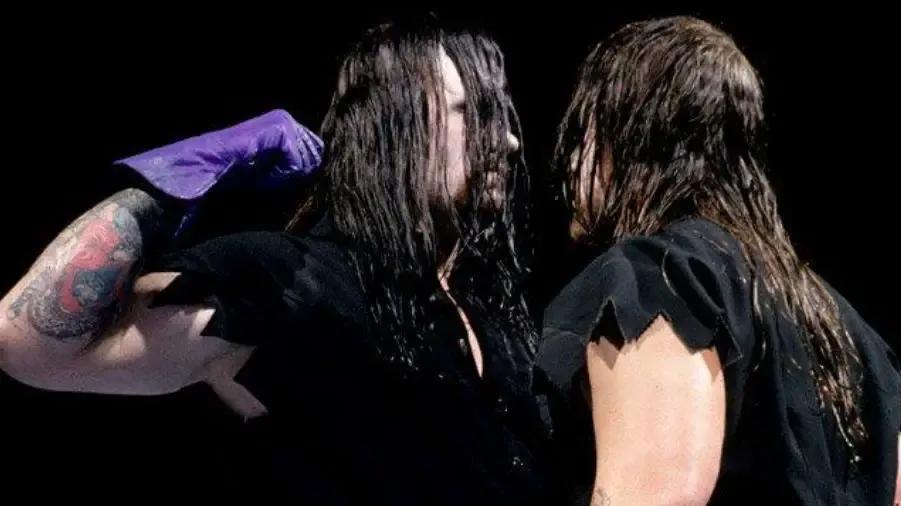
Poor Brian Lee. It was entirely a no-win situation playing the role of an Undertaker clone, when only Mark Calaway possesses the rare traits needed to pull off the role. To Lee's credit, he didn't do the worst job in the world co-opting 'Taker's look, mannerisms, and the like. The idea was doomed from the start, but Lee did a respectable job swimming against that current.
One positive out of the whole mess is that the Underfaker saga earned another wrestler a full-time job. In order to get into the character, Lee worked extensively with a WWE enhancement talent, who played the role of tackling dummy as Lee practised Undertaker's moves during a week of training sessions. The real Undertaker, along with Vince McMahon and Pat Patterson, attended the final day of these rehearsals, and were impressed by the work of the assisting wrestler. That man was jobber PJ Walker, who would soon after be hired as Aldo Montoya, and would later become ECW Champion as Justin Credible.
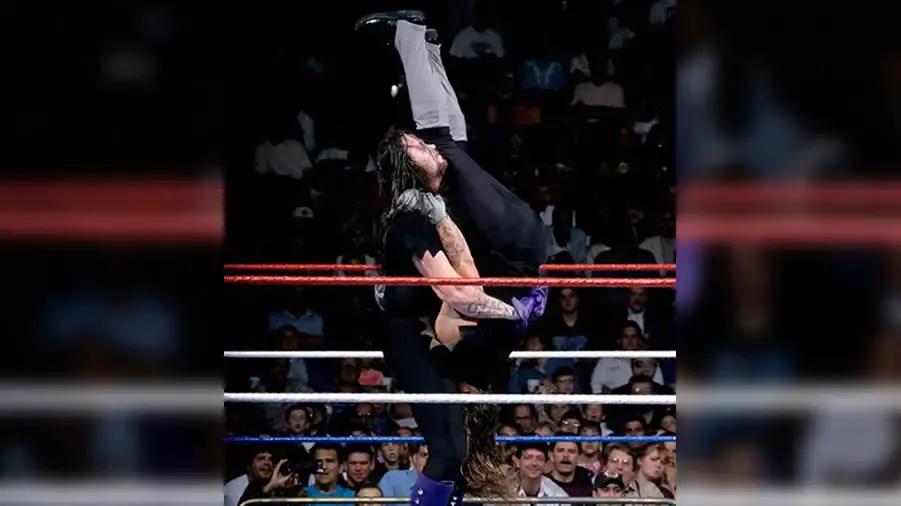
So finally, after some bad Leslie Nielsen comedy, The Underfaker stinking out the arena, and a pre-match light show, we get the goddamned Battle of the Takers. It took only nine minutes and some of the slowest wrestling this side of a La Brea Tar Pits Deathmatch for Real 'Taker to put Faux 'Taker out of his misery for good. Apparently, purple gloves are Brian Lee's kryptonite.
As bad as all of that was (and make no mistake, it was all pure toxic sludge), the match ending was reportedly supposed to be even stranger. When all was said and done, there was reportedly supposed to be another lights-and-magic show with both Undertakers standing in the ring. Somehow, some way, through an unexplained act that goes beyond mere humanity, the two Undertakers were to somehow "merge", so that when the lights came back on, only Calaway remained. You know, as though Calaway somehow absorbed Lee's physical form. The federal prosecutors may have actually gotten a conviction if they'd tried WWE for illicit LSD use.